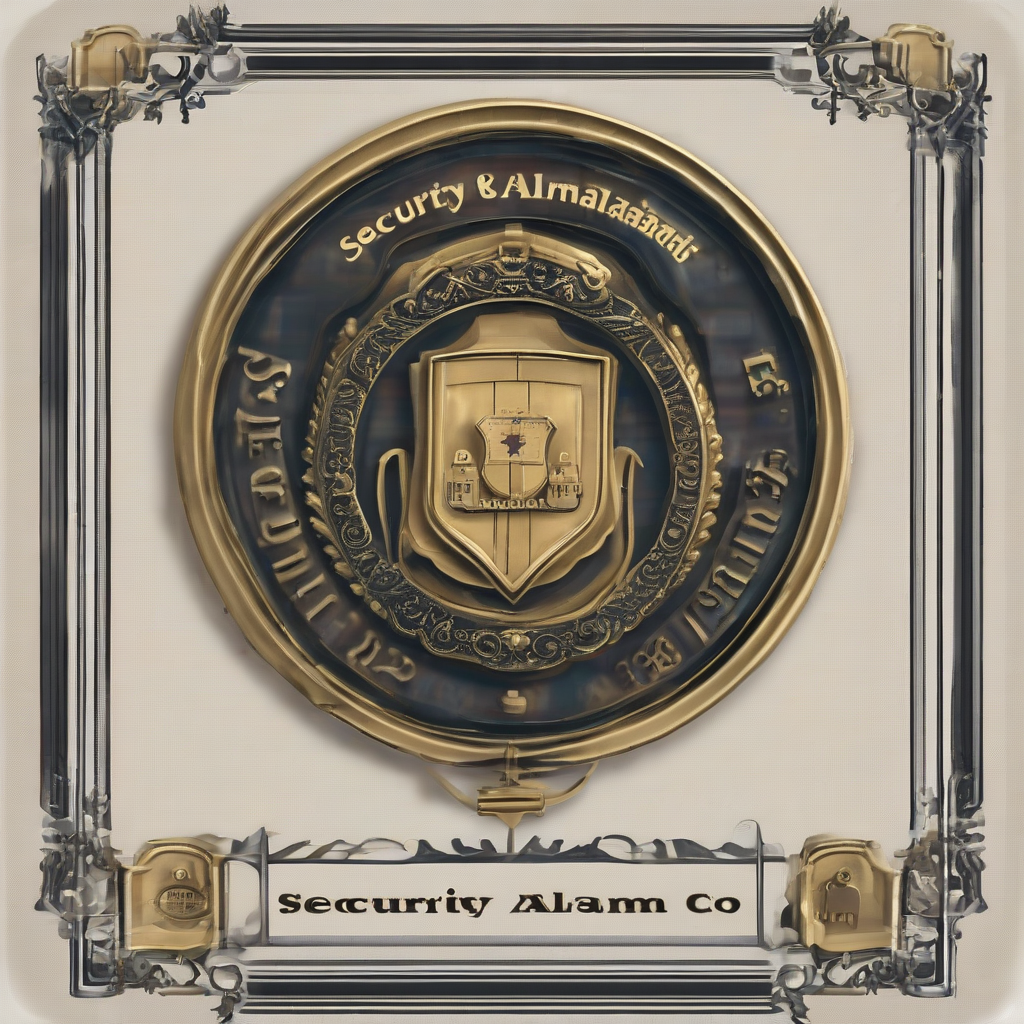Security Alarm Co: A Comprehensive Guide to Protecting Your Property
Security Alarm Co, a hypothetical company in this context, represents the broader landscape of security alarm companies and the services they provide. This guide explores the various aspects of choosing, installing, and maintaining a security system for your home or business, focusing on the key considerations and benefits.
Choosing the Right Security System
Selecting the appropriate security system depends on several factors, including your budget, the size and layout of your property, your specific security needs, and your technological comfort level. Here’s a breakdown of crucial aspects to consider:
Types of Security Systems
- Wired Systems: Traditional wired systems offer reliable performance and are less susceptible to wireless interference. However, they require professional installation and can be more expensive upfront.
- Wireless Systems: Wireless systems offer greater flexibility in placement and are generally easier to install. They use radio frequencies to transmit signals, but can be vulnerable to interference and require regular battery changes.
- Hybrid Systems: Hybrid systems combine the benefits of both wired and wireless technologies, offering a balance of reliability and flexibility.
- DIY Systems: Do-it-yourself systems are becoming increasingly popular, offering a cost-effective solution for those comfortable with self-installation and monitoring. However, they might lack the advanced features and professional support of professionally installed systems.
- Monitored Systems: Monitored systems provide 24/7 professional monitoring. In the event of an alarm, the monitoring station will contact emergency services and notify you.
- Unmonitored Systems: These systems only trigger an alarm locally, without professional monitoring. They are generally less expensive but offer limited protection in situations where you’re not on-site.
Essential Components of a Security System
- Control Panel: The central hub of the system, controlling all other components.
- Sensors: Detect intrusions, including door/window sensors, motion detectors, glass break detectors, and perimeter sensors.
- Sirens: Loud alarms that deter intruders and alert neighbors.
- Keypads: Allow users to arm, disarm, and control the system.
- Key fobs: Remote controls for arming and disarming the system.
- Cameras: Provide visual surveillance and deter potential intruders. Can be wired, wireless, or IP cameras.
- Video Doorbells: Allow you to see and speak to visitors remotely.
- Smart Home Integration: Many modern systems integrate with other smart home devices, enabling automation and remote control.
Professional Installation vs. DIY Installation
The choice between professional and DIY installation depends on your technical skills and comfort level. Professional installation offers several advantages:
- Expertise: Professionals are trained to install the system correctly and efficiently, ensuring optimal performance.
- Warranty: Professional installations often come with a warranty, covering defects and malfunctions.
- Troubleshooting: Professionals can quickly diagnose and fix any problems that may arise.
- Code Compliance: Professional installers ensure compliance with local building codes and regulations.
DIY installation can be cost-effective, but requires careful planning and execution. Improper installation can lead to system malfunctions and security vulnerabilities.
Monitoring Services
Choosing a monitoring service is crucial for ensuring rapid response in case of an emergency. Consider the following factors:
- Response Time: How quickly the monitoring station will contact emergency services.
- Communication Methods: The methods used to communicate with the monitoring station (e.g., phone, cellular).
- Customer Service: The availability and responsiveness of customer support.
- Contract Terms: Carefully review the contract terms, including cancellation policies and fees.
Maintaining Your Security System
Regular maintenance is essential to ensure your security system functions correctly. This includes:
- Testing: Regularly test all sensors and alarms to ensure they are functioning properly.
- Battery Replacement: Replace batteries in wireless components as needed.
- Software Updates: Keep the system’s software up-to-date to benefit from security patches and new features.
- Professional Maintenance: Consider scheduling professional maintenance checks annually to identify and address potential issues.
Security System Features and Considerations
Modern security systems offer a range of advanced features:
- Remote Access: Control and monitor your system remotely via smartphone app or web interface.
- Automated Features: Integrate with other smart home devices for automated actions, such as turning on lights when an alarm is triggered.
- Z-Wave and Zigbee Compatibility: Allows seamless integration with a wider range of smart home devices.
- Cellular Backup: Provides a backup communication path in case of landline failure.
- Two-Factor Authentication: Adds an extra layer of security to prevent unauthorized access.
- Geofencing: Automatically arms or disarms the system based on your location.
- Video Analytics: Analyzes video footage to detect specific events, such as loitering or intrusion.
- Facial Recognition: Identifies individuals captured on camera.
Choosing a Security Alarm Company
Selecting a reputable security alarm company is paramount. Consider these factors:
- Reputation and Reviews: Research the company’s reputation and read customer reviews.
- Licensing and Insurance: Ensure the company is properly licensed and insured.
- Services Offered: Determine if the company offers the specific features and services you need.
- Pricing and Contracts: Compare pricing and contract terms from different companies.
- Customer Support: Assess the quality of their customer support and responsiveness.
Types of Security Threats and How Security Systems Mitigate Them
Security systems offer protection against a wide range of threats:
- Burglary: Sensors and alarms deter intruders and alert authorities.
- Fire: Smoke detectors and heat sensors detect fires and trigger alarms.
- Carbon Monoxide Poisoning: Carbon monoxide detectors alert occupants to dangerous levels of carbon monoxide.
- Flood: Water sensors detect water leaks and trigger alarms.
- Medical Emergencies: Medical alert systems allow for quick response in medical emergencies.
Understanding Security System Costs
The cost of a security system varies greatly depending on the factors mentioned above. The initial investment includes the cost of equipment, installation, and any necessary permits. Ongoing costs include monthly monitoring fees, battery replacements, and potential maintenance charges.
The Future of Security Alarm Systems
The security alarm industry is constantly evolving, with new technologies and features emerging regularly. Expect to see further integration with smart home technology, advanced analytics capabilities, and enhanced security measures.
